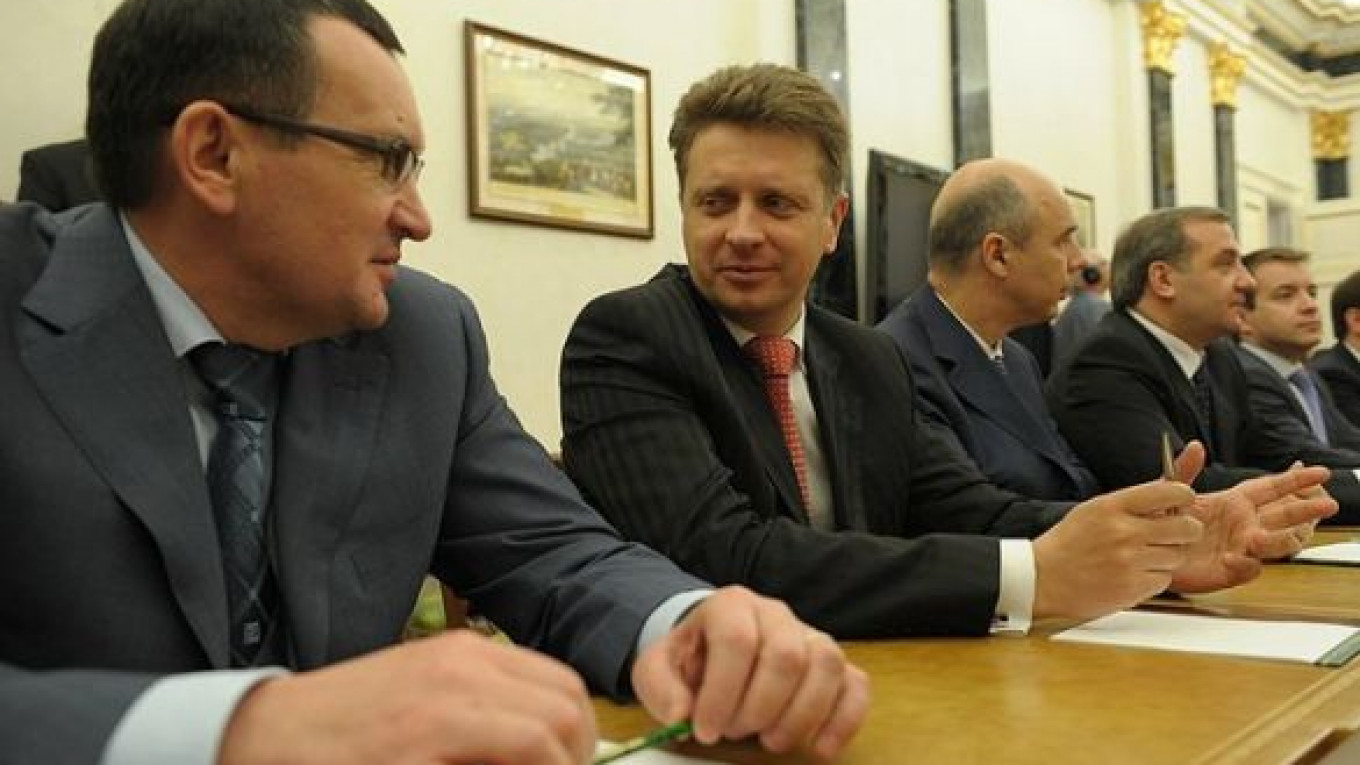The number of female ministers in the new government has dropped to just two from three in the previous Cabinet — a decline that sparked much discussion Tuesday as to why so few women play a role in Russian politics.
Sociologists and politicians told The Moscow Times that Russia's overarching patriarchal character has resulted in widespread discrimination and that job quotas for women should be enforced.
"There is a stereotype that women can't be leaders, although this is not correct," said Marina Baskakova, a leading researcher on gender issues at the Russian Academy of Sciences.
She said both Russian men and women tended to believe the stereotype, and therefore few voted for female candidates and few women ran in elections.
Baskakova said the number of female Duma deputies has remained about 13 percent to 14 percent since the early years after 2000. In the Federation Council, only 11 of the 165 members are women, or about 15 percent are women, according to the chamber's website.
In former President Dmitry Medvedev's much-touted "presidential reserve" program to gather the country's most qualified 1,000 people for top jobs, only 10 percent to 15 percent were women, Baskakova said.
State statistics from 2005 — the latest data available — showed that women in Russia are generally more educated than men, but women who hold government jobs are, for unclear reasons, less educated than men, Baskakova said.
Women mostly hold jobs in the lower levels of government, while "the higher the rank, the fewer the women," she said.
Some male Russian politicians argued that this was only natural.
"We have our traditions and mentality," Federation Council Senator Valery Ryazansky said. "Women pay more attention to their household and family."
Communist State Duma Deputy Sergei Obukhov said it was simply that "women are too clever to meddle in politics."
Lyubov Sliska, who served as a deputy speaker in the State Duma until December, said that kind of patriarchal attitude "has been cultivated in us" and will remain "in our genes for many years to come."
She suggested that men might be "afraid to let women be in politics" because women are "more emotional" and therefore "they don't always agree with men," making it harder to strike deals.
But she was quick to note that few women are involved in corruption scandals.
Both Baskakova and Sliska said quotas for women should be introduced.
"It is men who define politics toward women, based on their understanding of what women need," Baskakova said. "Although few of them can even choose a proper present for their wives."
She said the time has come for employers to "stop viewing women as a second-
grade labor force."
Russia 92nd out of 189 countries for the number of female lawmakers in the lower chamber of parliament, according to a survey done this spring by the Inter-Parliamentary Union.
A Message from The Moscow Times:
Dear readers,
We are facing unprecedented challenges. Russia's Prosecutor General's Office has designated The Moscow Times as an "undesirable" organization, criminalizing our work and putting our staff at risk of prosecution. This follows our earlier unjust labeling as a "foreign agent."
These actions are direct attempts to silence independent journalism in Russia. The authorities claim our work "discredits the decisions of the Russian leadership." We see things differently: we strive to provide accurate, unbiased reporting on Russia.
We, the journalists of The Moscow Times, refuse to be silenced. But to continue our work, we need your help.
Your support, no matter how small, makes a world of difference. If you can, please support us monthly starting from just $2. It's quick to set up, and every contribution makes a significant impact.
By supporting The Moscow Times, you're defending open, independent journalism in the face of repression. Thank you for standing with us.
Remind me later.






